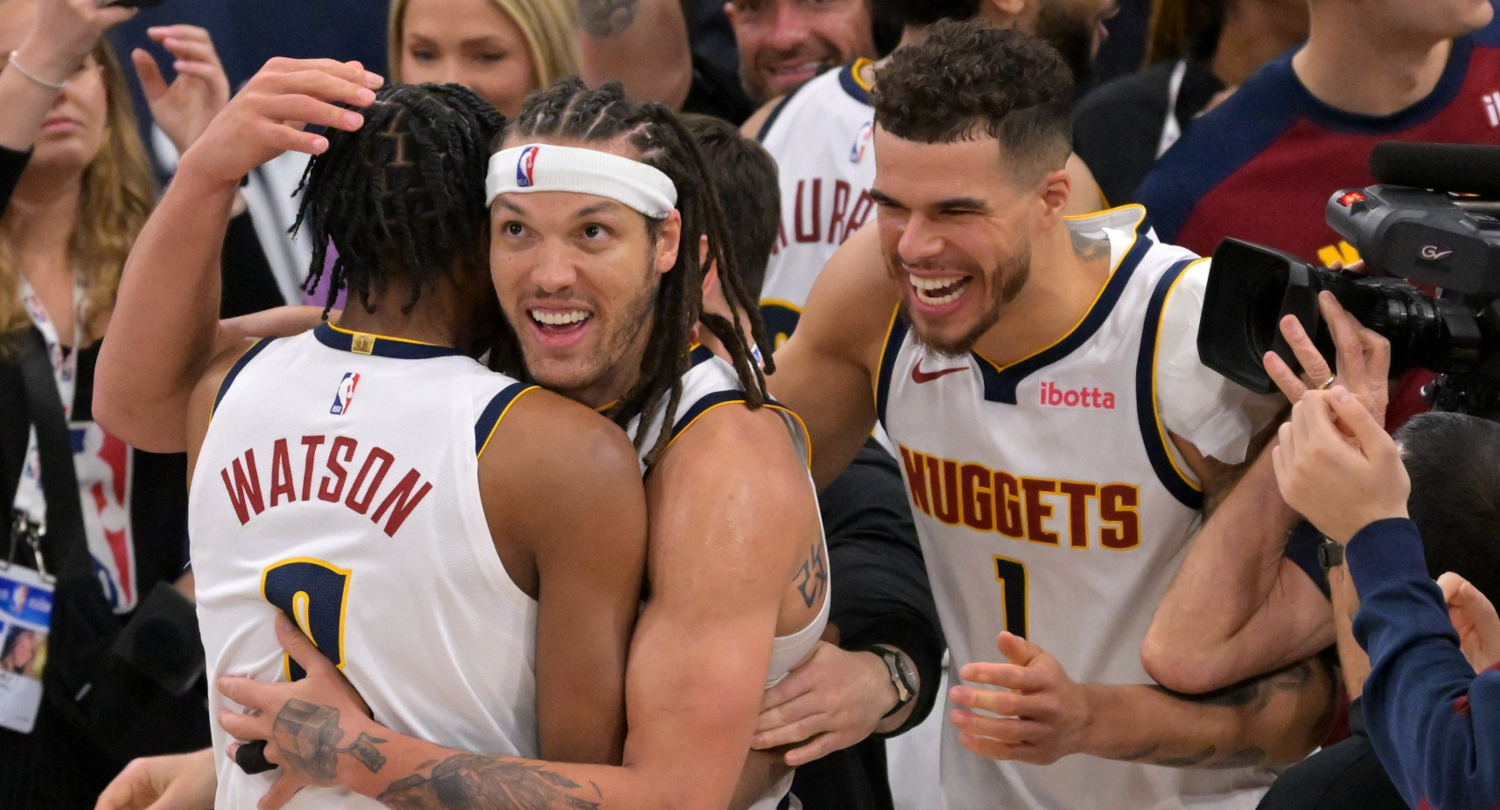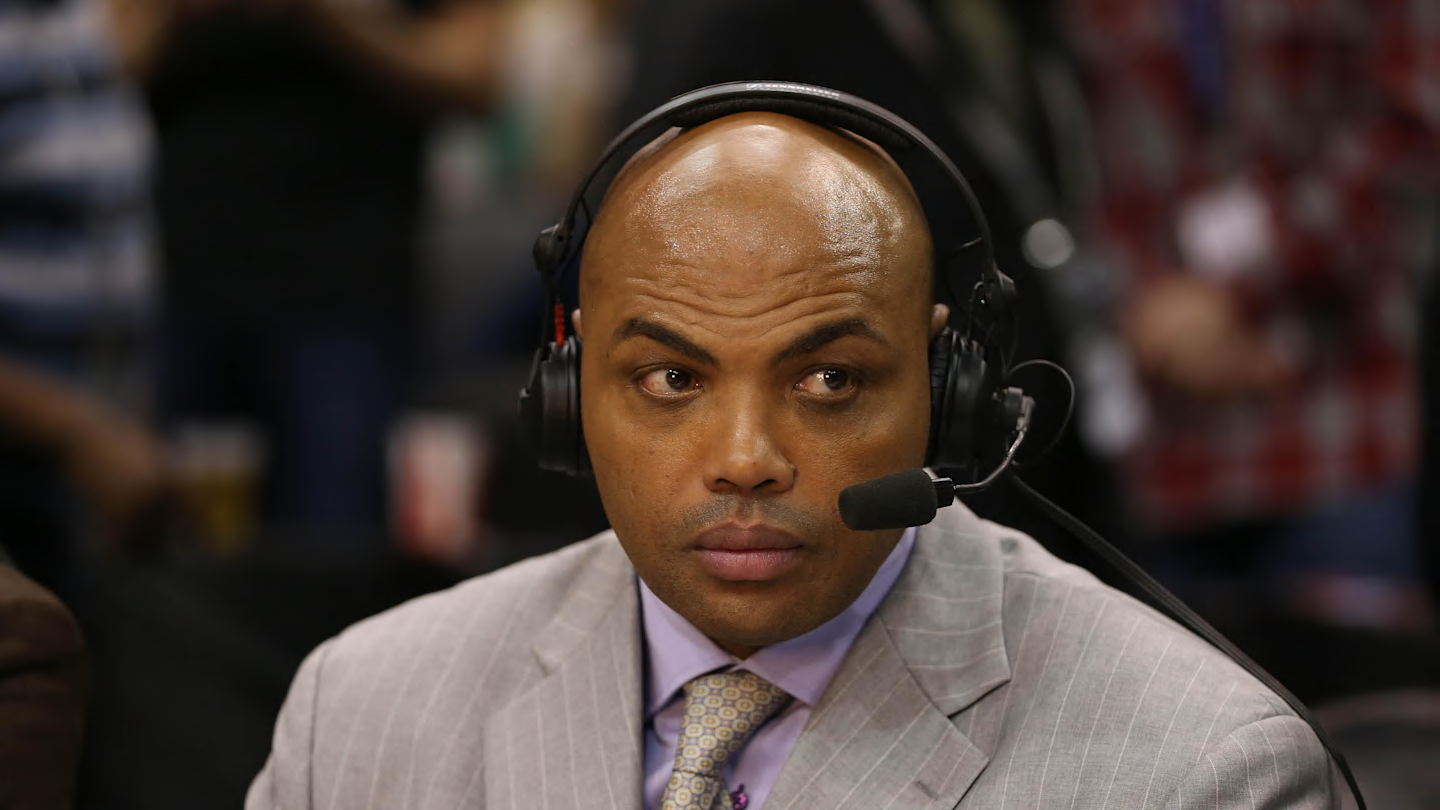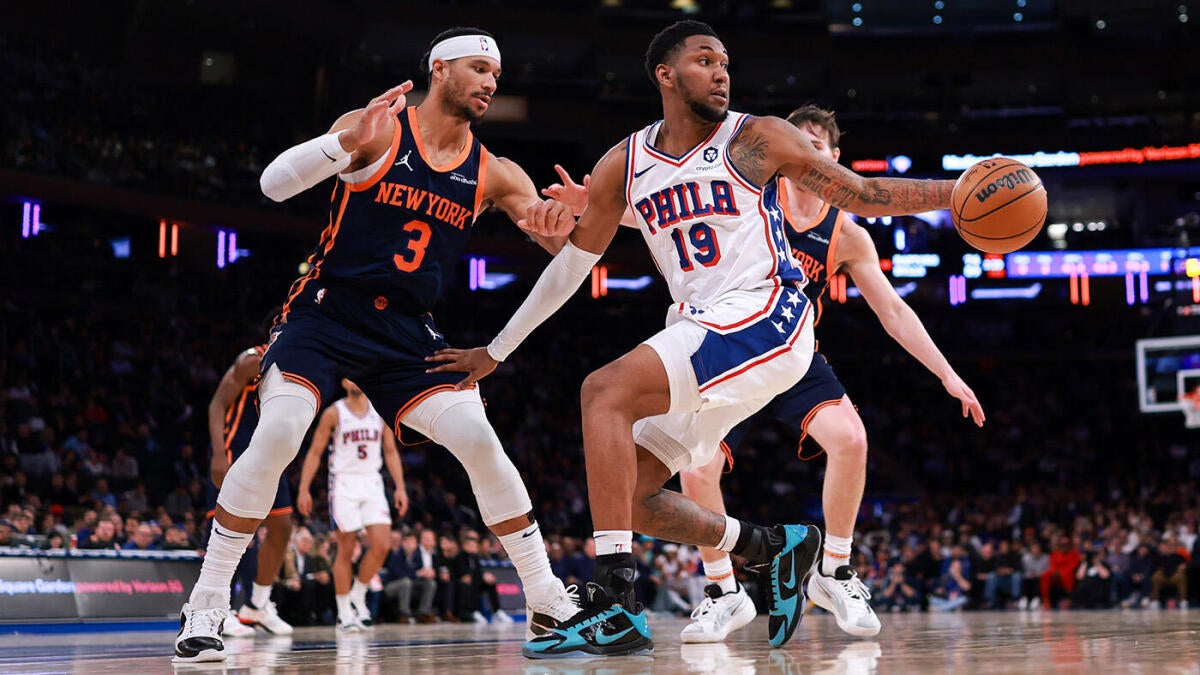
There’s long been a debate in sports beyond getting calls out quickly and getting them right. One of the latest examples of that came in Game 4 of the Denver Nuggets-Los Angeles Clippers series Saturday. There, Aaron Gordon caught an alley-oop from Nikola Jokić and dunked it right at the buzzer for what would eventually be the game-winner, but that play came so close to the buzzer that TNT announcers Kevin Harlan and Reggie Miller were far from certain if it would count at first:
Aaron Gordon’s eventual-game winning dunk in Nuggets-Clippers Game 4 was so close to the buzzer that Kevin Harlan and Reggie Miller couldn’t declare it good at first. “Did Gordon beat the buzzer?” “They’re going to take a look at it!” pic.twitter.com/F3TPzj9skT
— Awful Announcing (@awfulannouncing) April 27, 2025
That was followed by almost three minutes of replay review. Miller in particular eventually worked his way around from uncertainty to a prediction that this would stand, which wound up justified. (And that led to an enthusiastic “The Nuggets have won!” call from Harlan, but with that coming several minutes after the play in question.)
That led to almost three minutes of review before the on-floor call of a good basket was upheld, and before Harlan could say “The Nuggets have won! The Nuggets have won!” pic.twitter.com/6Gb5XEAjQ4
— Awful Announcing (@awfulannouncing) April 27, 2025
The delay from the actual moment to the decided outcome drew some criticism. One notable voice there was Wall Street Journal sports columnist (and former Crowd Goes Wild panelist) Jason Gay, who argued this showed “the inanity of replay review”:
I’m sure I’m in minority on this, but Nuggets ending shows the inanity of NBA replay. The referees on the court made correct call. But instead of a great celebration you get a pause as everyone knows they have to wait for forensic confirmation. And you neuter the moment.
— Jason Gay (@jasongay) April 27, 2025
Others offered takes that it was impossible to tell the correct outcome even with the review:
Nuggets-Clippers ending was basically Virginia Tech-Miami where we could watch the review of the last play 200 times and still not know who won
— Steve Helwick (@s_helwick) April 27, 2025
And others still fervently declared the officials wrong:
Please enable JavaScript to view the poll powered by Disqus.
GM STEALTH AKA REALEST REF STEALTH BACK HERE.
AFTER CAREFUL REVIEW:
IT IS NOT A SUCCESSFUL BASKET!! THE REF WAS TOO QUICK TO CALL IT A BASKET! Initially understanding was GORDON IS STILL TOUCHING THE BALL AS THE LIGHT GOES OF INSIDE THE CYLINDER#ESPN #Clippers #Nuggets pic.twitter.com/rJbdEJi51Y
— J STEALTH D ; STEALTHxJ = PSN (@STEALTHxJ) April 27, 2025
But, beyond discussion of if this call was right or wrong, Gay’s argument is interesting for being against the length of time replay review can take more generally. And he later added he understands the potential counterarguments here, but doesn’t agree with them, even if that means erroneous calls:
the counter argument is obvious: a) it’s the playoffs, you want it to be right and b) the waiting around replay drama is its own entertainment.
i just don’t totally buy b.
— Jason Gay (@jasongay) April 27, 2025
yes but it’s also sports, humans miss calls all the time, and the way replay culture has invaded every level of sports, including kids sports, is pernicious.
— Jason Gay (@jasongay) April 27, 2025
There seem to be at least some who share Gay’s feelings there. And he’s not the only replay critic in sports media. Saturday saw another example of that on a MLB on Fox broadcast. Granted, that was a much-lower stakes moment, with it being a Texas Rangers-San Francisco Giants regular-season game, but the criticisms broadcasters Jason Benetti and A.J. Pierzynski offered of a lengthy review there had some commonalities to this discussion (although that play was perhaps more obvious):
A.J. Pierzynski and Jason Benetti had a hard time understanding why this fairly obvious play took more than two minutes to review. pic.twitter.com/C4LPkWPQ3R
— Awful Announcing (@awfulannouncing) April 26, 2025
There’s a wider notable conversation here. The debate of accuracy versus “the human element” shows up in many places, including with the “robot umps” conversation. And while the accuracy side has been dominating much of that conversation for the past decade-plus, there have been more arguing against that side lately, including even with complaints over the NFL’s plans to replace its “chain gang” with automatic censors. In fairness, though, there haven’t been as many blatantly obvious errors such as “Touchdown, Seahawks” or Jim Joyce-Armando Galarraga lately, moments that were key to a lot of the push for an enhanced focus on accuracy. (There sure still are some, though.)
On the announcing side, there are perils to reviews as well. Announcers have to weigh whether to go big on one side or the other of a potential game-winning call, with the plus side of getting a great highlight if they’re right in how it’s ruled, but the downside of taking criticism if their perception was incorrect. They can go more moderate if they’re not sure, as Harlan and Miller did here, but that leads to something that’s tougher for shareable highlights. And while Harlan did get off the eventual emotional “Nuggets win!” call here, the circumstances of that replay review meant it came minutes after the key play.
Overall, this particular NBA game’s ending isn’t likely to produce much change. The officials on the floor made a call, and replay backed them up (or at least didn’t overturn them). And while it led to some awkwardness during that review, this play was so close it was easy to see why a lengthy review was taken (unlike in the MLB game).
And given the playoff, betting, and more stakes here, getting the outcome of this game right was crucial. And some of those past errors show how much more of a firestorm can be kicked off by an obviously-inaccurate call. But it is interesting to see more prominent sports figures like Gay openly opposing the “as much accuracy as possible, regardless of delays” line of thinking that’s seemed to dominate a fair bit of the sports landscape lately. And we’ll see where that conversation goes from here.


